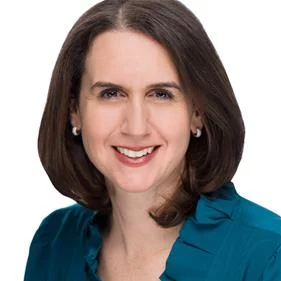Seeing Ourselves in Others: The Importance of Interfaith Role Models in Jewish Engagement

This piece was originally featured on June 15, 2016 by the Genesis Prize.
At Hillel, we consider ourselves to be experts in engagement. On many campuses, Hillel engages a greater percentage of the Jewish population than most Jewish communities in a given city can claim. We have been recognized nationally for leading the way in creating innovative, peer to peer methods that have dramatically expanded Hillel’s reach, and helped us better reflect the diversity interests and backgrounds of Jewish students.
And yet, to be great, we always have to be learning and improving. I want to share one recent lesson.
Last summer, when Michael Douglas was awarded the Genesis Prize, he called new attention to what it means for the Jewish community to welcome people of interfaith backgrounds. Douglas spent his prize money by investing in organizations who are engaging people from interfaith backgrounds, including Hillel. As part of their welcome packet at Hillel’s Engagement Institute last August, staff and students in attendance received a letter from Douglas. In it, he wrote:
“My journey to Judaism was a long time in the making, but along the way there have been a number of key moments and people in my life that pointed me in the right direction, that led to me being able to say these four words with great with pride: I am a Jew.
“The work you are doing on campus is important work. You have the privilege of being people who include and inspire your peers to explore their own Jewishness. You have the opportunity to engage Jews in your diverse networks, including those from intermarried backgrounds and to welcome them to all that is beautiful and complicated within the Jewish culture.”
Staff and students read the letter, and what followed surprised us: a “coming out” by students and Hillel professionals in attendance who had been hiding that they, too, were part of an interfaith family or relationship, for fear that others would view them as “less than” Jews.
Years earlier, I had a roommate who taught at a private Jewish high school. I will never forget the day I accompanied her to work for a school assembly where she came out to the student body, sharing that she was a lesbian. “I’m telling you this about me,” she said, “because I know that you seek in us, your teachers, examples for what is possible in your life. Some of you may be gay or lesbian and wondering if that is OK. I want you to know that it is, and to be an example for you.”
The “Michael Douglas effect” at last summer’s Engagement Institute brought me right back to my old roommate’s message, and of the importance of role models. We had thought we had been doing a good job at Hillel of being inclusive to students from interfaith backgrounds. There were even plenty of students of interfaith backgrounds in the room! And yet it wasn’t enough. We had failed to put forth explicit role models of committed Jews in interfaith relationships. We had inadvertently sent a message to staff in interfaith relationships and students from interfaith backgrounds that made them feel “less than,” diminished, inadequate.
We’re working to improve. During the past year, Hillel’s Social Entrepreneurship department has worked to strengthen our messages of welcoming and inclusion. The Jews of the University photojournalism campaign, started by engagement interns at Brown University, and modeled after the popular Humans of New York blog, and now led by students across the United States and Israel, highlights the stories of Jewish college students of every shape, size, color and affiliation, including students of interfaith backgrounds. Additionally, in partnership with Interfaith Family, Hillel has developed new curricula for student and staff trainings and created forums for Hillel professionals from interfaith backgrounds to discuss their stories with peers, legitimizing both their value and place in our community of professionals.
The response that Michael Douglas’ letter to Hillel engagement interns garnered was an important reminder of how essential role models are to Jewish engagement work. Students must see themselves – even those parts of themselves that make them fell most insecure as Jews – in those who seek to engage them. We hope our work to lift up role models of all Jewish backgrounds, including those from interfaith backgrounds, will make that possible.
Jennifer Zwilling is the Vice President for Strategy and Measurement at Hillel International.